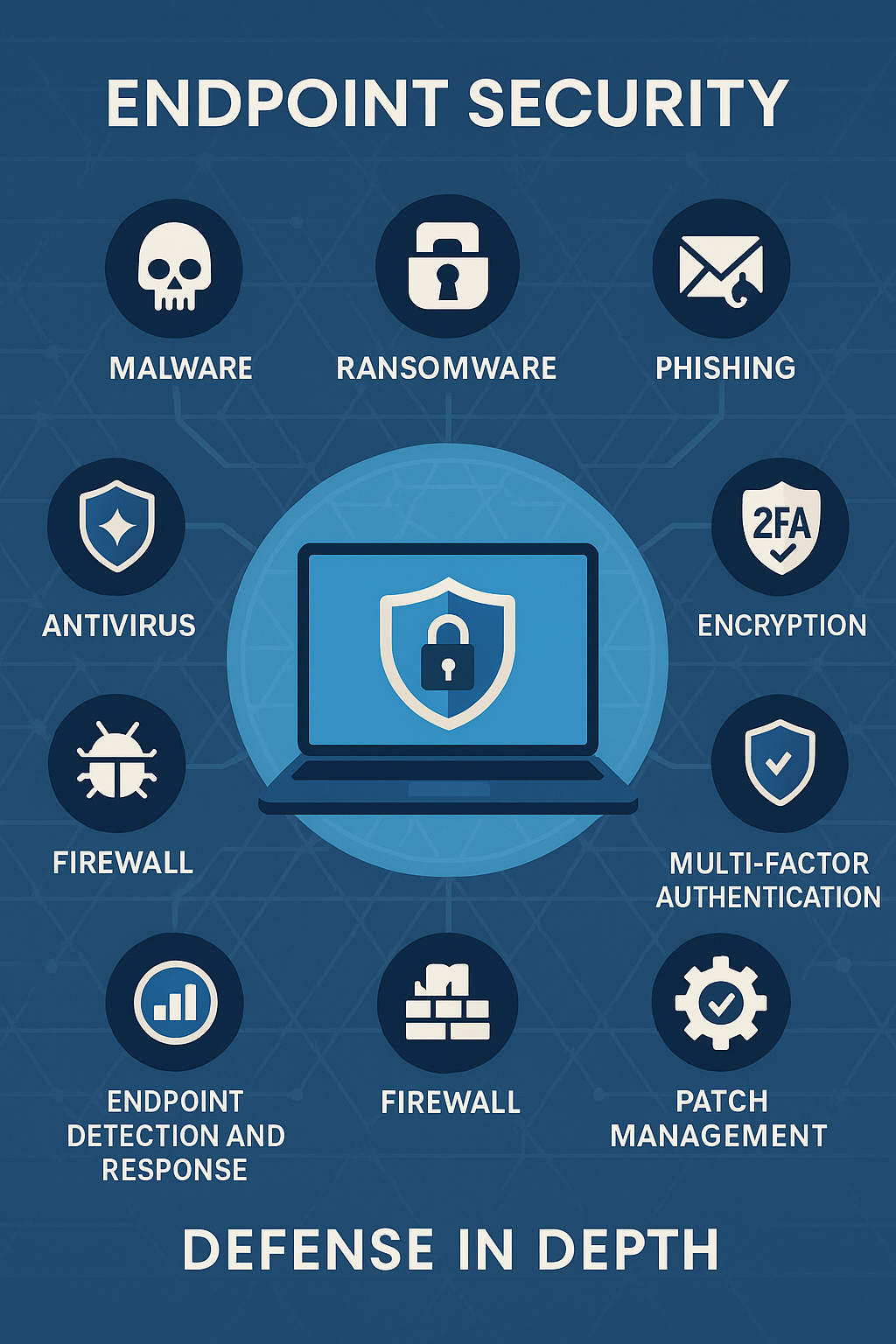Medium
3w
65

Image Credit: Medium
Lecture Notes: Endpoint Security
- Endpoint security focuses on protecting end-user devices like laptops, desktops, and mobile devices from cyberattacks.
- Malware, including rootkits, bots, and botnets, poses a significant threat to endpoint security.
- Cyber attacks against endpoints follow stages like persistence and action on objectives from an attacker's perspective.
- Vulnerabilities in endpoint security can lead to potential security breaches.
- A defense-in-depth approach is essential in endpoint security, utilizing technical controls, policies, and user education.
- Key components like anti-malware, firewalls, secure configurations, access control, data protection, and incident response are vital for endpoint security.
- Disabling unnecessary services/ports, implementing access controls, and monitoring are crucial security measures.
- Incident response procedures and physical security measures are necessary for comprehensive endpoint security.
- IoT security presents additional challenges due to the diverse nature and vulnerabilities of IoT devices.
- Adopting an adversarial thinking mindset is important for cybersecurity professionals to anticipate and defend against potential attacks.
Read Full Article
3 Likes
For uninterrupted reading, download the app